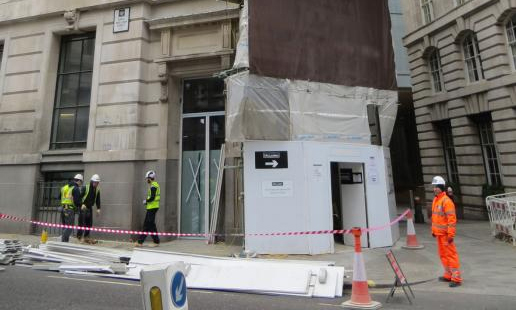A migration report published on 2 February by CITB (Construction Industry Training Board) suggests just one in ten construction employers understands the government's new migration system introduced at the beginning of this year.
A survey with 300 respondents found that 39% were unaware the rules had even changed. Further research found that smaller companies (SMEs) were most worried about the ‘prohibitive costs’ that could result in sponsors having to pay £1,000 for every migrant worker they take on in their first 12 months of employment and an additional £500 for each six-month period thereafter.
The latest report adds to fears highlighted in a poll conducted last year when 72% of those asked believed the end of the free movement of labour and the introduction of a points-based system would impact the construction industry's ability to secure a skilled workforce. According to CITB, 27% of employers and 55% of recruitment agencies believe the impact will be severe.
One of the main sources of confusion is the assessment criteria for evaluating whether a migrant worker is eligible to work in the UK. The new standards include skills and qualification levels, salary and English language ability.
A spokesperson for a large recruitment agency in the North West described to the CITB how this criteria around salary made hiring non-permanent staff problematic. "It's quite tricky because they are on an hourly or daily rate mostly. The market is not salaried. They may not work full-time in January or February. I know the new system is designed to work on a salary basis, but these guys are not salaried. The government are going to want evidence to prove it [a salary]. Construction Industry Scheme returns could be used but I don't know how this is possible prior to actually doing the job."
These complaints were echoed by another large employer from the South East, suggesting that the additional bureaucracy created by the new system "looks unnecessarily complicated". They added: "I think the lack of clarity about the entry level, whether it's on salary or skill, or a combination of both, is a potential issue. It doesn't seem to be clear, concise and consistent."
Bridging finance intermediary, Hank Zarihs Associates, echoes these calls for more clarity for the construction industry in the face of such drastic changes. It says shortages in skilled labourers will have a serious knock-on effect for both the construction industry and developers as the UK seeks to recover from the coronavirus pandemic's decreased output levels. Anecdotally, there already seems to be a shortage of skills, as well as a shortage of building products and drivers to deliver them as Brexit impacts on the arrival of goods from Europe.
Before last year, European Union-born workers accounted for 80% of non-UK born people in construction - 8.2% of the UK construction industry in general and almost 50% in London, according to the Labour Force Survey. Almost 40% of construction companies employed immigrant labour. A quarter of the European Union-born constructions workers have now left the UK (source: Construction Products Association) and the confusion over the new immigration rules looks likely to add to the problem of skills shortages.

